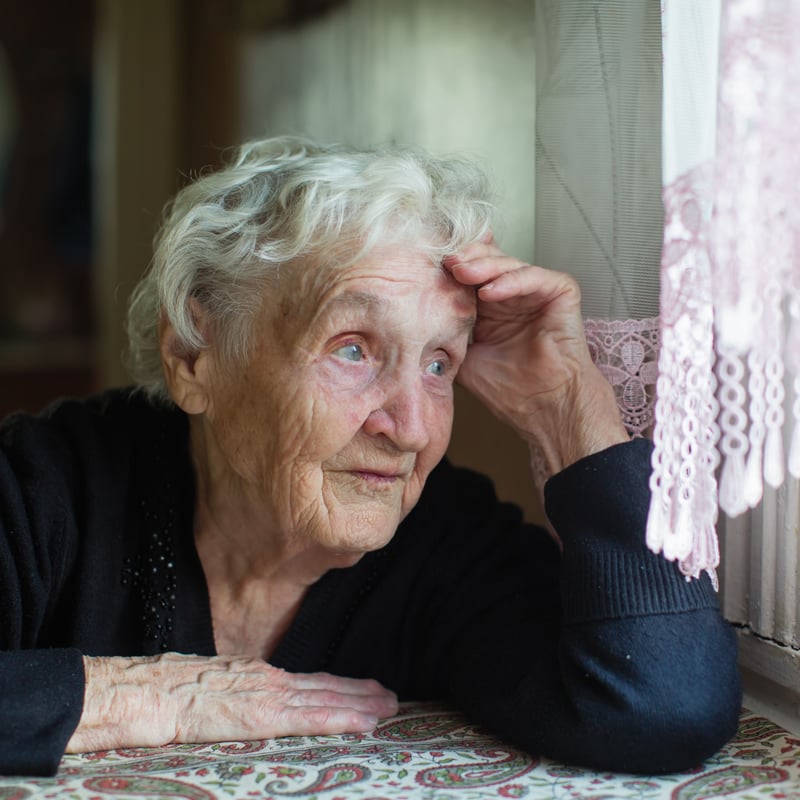1
00:00:03,105 –> 00:00:04,825
Amélia: Finalmente!
{{Amelia: Finally!}}
2
00:00:04,825 –> 00:00:06,225
Pedro: Então avó?!
{{Pedro: What’s wrong, Grandma?}}
3
00:00:06,225 –> 00:00:08,505
Não combinámos às 9h00?
{{Didn’t we agree to [meet at] 9:00?}}
4
00:00:08,505 –> 00:00:10,745
Amélia: São 9h20!
{{Amelia: It’s 9:20!}}
5
00:00:10,745 –> 00:00:13,425
Pedro: São 20 minutos de atraso, avózinha.
{{Pedro: It’s 20 minutes late, Granny.}}
6
00:00:13,425 –> 00:00:16,265
Pelo caminho, apanhei algum trânsito!
{{Along the way, I hit some traffic!}}
7
00:00:16,265 –> 00:00:19,725
Amélia: Há imenso tempo que te espero, Pedro!
{{Amelia: I’ve been waiting a long time for you, Pedro!}}
8
00:00:19,725 –> 00:00:22,285
Pedro: Dona Amélia, que culpa tenho eu,
{{Pedro: Dona Amélia (said sarcastically), what fault do I have,}}
9
00:00:22,285 –> 00:00:26,865
que nós combinemos às 9h00 e a senhora esteja pronta às 7h00?
{{that we agree on 9:00 and you’re ready at 7:00?}}
10
00:00:26,865 –> 00:00:30,885
Amélia: Quem me dera que estivesse pronta apenas às 7h00.
{{Amelia: If only you were ready by 7:00.}}
11
00:00:30,885 –> 00:00:34,025
Desde as 4h00 que não prego olho!
{{I haven’t slept a wink since 4:00!}}
12
00:00:34,025 –> 00:00:36,645
Pedro: Sempre a mesma coisa, avózinha.
{{Pedro: Always the same thing, Granny.}}
13
00:00:36,645 –> 00:00:39,585
O avô era igualzinho!
{{Grandpa was the same!}}
14
00:00:39,585 –> 00:00:42,265
Amélia: Está no sangue, já sabes!
{{Amelia: It’s in the blood, you know!}}
15
00:00:42,265 –> 00:00:44,425
Sempre que temos algo marcado,
{{Whenever we have something scheduled,}}
16
00:00:44,425 –> 00:00:47,705
não conseguimos dormir nessa noite!
{{we can’t sleep that night!}}
17
00:00:47,705 –> 00:00:52,365
Pedro: Fogo, avózinha, assim até me custa marcar algo consigo…
{{Pedro: Damn, Granny, that way it’s hard for me to schedule something with you…}}
18
00:00:52,365 –> 00:00:53,705
E de que serve isso?
{{And what good is that?}}
19
00:00:53,705 –> 00:00:55,605
Eu não irei chegar mais cedo,
{{I will not be arriving earlier,}}
20
00:00:55,605 –> 00:00:58,165
e podia aproveitar para descansar.
{{and you could take the opportunity to rest.}}
21
00:00:58,165 –> 00:01:00,805
Amélia: Não vale a pena, meu netinho querido.
{{Amelia: It’s no use, my dear grandchild.}}
22
00:01:00,805 –> 00:01:02,145
Sou assim…
{{I’m like this.}}
23
00:01:02,145 –> 00:01:06,865
Como se costuma dizer, “burro velho não aprende”.
{{As they say, “[an] old donkey doesn’t learn.”}}
24
00:01:06,865 –> 00:01:10,345
Pedro: Mas depois não diga que eu me atrasei.
{{Pedro: But then don’t say I was late.}}
25
00:01:10,345 –> 00:01:16,565
Pedro ajuda a avó a entrar no carro e partem em viagem.
{{Pedro helps his grandmother get into the car and they drive off.}}
26
00:01:16,565 –> 00:01:19,625
Pedro: E o que esteve a fazer ontem, avózinha?
{{Pedro: And what did you do yesterday, Granny?}}
27
00:01:19,625 –> 00:01:21,725
Amélia: Brrrrrrrrrrrrrrrrr
{{Amelia: [snoring]}}
28
00:01:21,725 –> 00:01:23,175
Pedro: Avó?
{{Pedro: Grandma?}}
29
00:01:23,175 –> 00:01:25,405
Olha, adormeceu!
{{Look, you fell asleep!}}
30
00:01:25,405 –> 00:01:28,625
Pedro ri-se e continua a viagem.
{{Pedro laughs and continues the journey.}}
31
00:01:28,625 –> 00:01:33,245
Uns 30 minutos depois, estaciona no Parque da Cidade
{{About 30 minutes later, he parks in the City Park}}
32
00:01:33,245 –> 00:01:37,125
e olha para a avó que está a dormir profundamente.
{{and looks at his grandmother who’s sound asleep (deeply sleeping).}}
33
00:01:37,125 –> 00:01:40,405
Sai do carro, compra o jornal
{{He gets out of the car, buys the paper,}}
34
00:01:40,405 –> 00:01:43,185
e senta-se num banco a ler,
{{and sits on a bench reading,}}
35
00:01:43,185 –> 00:01:47,625
sem perder de vista a avó que continua a dormir no carro.
{{without losing sight of his grandmother who continues to sleep in the car.}}
36
00:01:47,625 –> 00:01:48,905
Amélia: Pedro?!
{{Amelia: Pedro?}}
37
00:01:48,905 –> 00:01:50,445
Onde estás?
{{Where are you?}}
38
00:01:50,445 –> 00:01:52,345
Pedro: Estou aqui, avózinha.
{{Pedro: I’m here, Granny.}}
39
00:01:52,345 –> 00:01:55,425
Sentei-me neste banco, mesmo de frente para o carro,
{{I sat on this seat, right in front of the car,}}
40
00:01:55,425 –> 00:01:57,705
a ler o jornal enquanto dormia.
{{reading the paper while you slept.}}
41
00:01:57,705 –> 00:01:59,305
Como está?
{{How are you?}}
42
00:01:59,305 –> 00:02:00,945
Amélia: Eu adormeci?
{{Amelia: I fell asleep?}}
43
00:02:00,945 –> 00:02:04,345
Pedro: Não só adormeceu, como até roncou!
{{Pedro: Not only did you fall asleep, but you even snored!}}
44
00:02:04,345 –> 00:02:07,285
Amélia: Não preguei olho a noite toda!
{{Amelia: I didn’t sleep a wink all night!}}
45
00:02:07,285 –> 00:02:08,545
Pedro: Está a ver?
{{Pedro: You see?}}
46
00:02:08,545 –> 00:02:11,425
Mais valia ter descansado durante a noite!
{{Better to have rested during the night!}}
47
00:02:11,425 –> 00:02:14,625
Amélia: Temos ainda muito dia para aproveitar!
{{Amelia: We still have a lot of day to enjoy!}}
48
00:02:14,625 –> 00:02:16,405
Vamos lá almoçar!
{{Let’s go have lunch!}}
49
00:02:16,405 –> 00:02:20,865
Pedro: Dona Amélia, Dona Amélia, só espero não ficar assim!
{{Pedro: Dona Amelia, Dona Amelia, I just hope I don’t get like this!}}
50
00:02:20,865 –> 00:02:23,465
Amélia: Corre-nos no sangue, Pedrinho…
{{Amelia: It runs in our blood, Pedro…}}
 We respect your privacy and have a ZERO TOLERANCE for spam.
We respect your privacy and have a ZERO TOLERANCE for spam.
















1. de que serve isso =What is the point of that?
2. burro velho não aprende= You can’t teach an old dog new tricks
Lovely episode!
Is “Fogo!” always used in this negative way or can it be more “Wow” in a positive way?
And do Grand children never address their grandparents as “tu”?
Many thanks
Debbie
Olá, Debbie. “Fogo” is a very versatile expression 🙂 It can express negative feelings, but also positive surprise or excitement. As for the grandchildren, the form of treatment used will vary from family to family. Many will absolutely address their parents and grandparents as ‘tu’, while others will keep it more formal. Determining factors include tradition/conservativeness (which has a generational aspect to it) and socio-economic class.
Thank you, Joseph!
I’m now going to use “fogo” at every possible opportunity, as it feels very satisfying to say!!!
Best wishes
Debbie
Haha, well, do it at your own risk! You’re welcome 😀
Olá Joseph, nas “expressions” encontra-se:
“Como se costuma diz”…*
A minha cabeça até agora só tinha “gravado”: “como se costuma dizer”.
Ambas variações são válidas?
* agradeceria uma frase exemplar.
Obrigada
Olá, Sabine. Foi um erro, uma gralha, que nos escapou! Já está corrigido – muito obrigado 🙂
Ótimo!
Obrigada e boa Páscoa a todos !
Muito boa a experiência. Muito fácil de usar a App.
In general, do families from higher socio-economic class tend to use the more formal address rather than the tu form between grandchild and grandparent, or vice versa?
Generally speaking, there’s a higher chance that those families use the more formal address.
Hello! I don’t understand how “sem perder de vista a avó que continua a dormir no carro” works. I don’t understand the structure. Is that equal to “sem perder a vista da avó …”? Thanks!
Maybe a word per word translation to English will help:
– Sem [without] perder [losing] de vista [from sight] a avó [the grandmother] que continua [who continues] a dormir [sleeping] no carro [in the car] -> (literal) Without losing from sight the grandmother who continues sleeping in the car.
“Perder de vista” (losing sight of…) is a fixed expression, which can’t be interchanged with “sem perder a vista da avó” (which would mean something odd like “without losing grandmother’s sight”).
One of the sweetest episodes ever, so heartwarming…